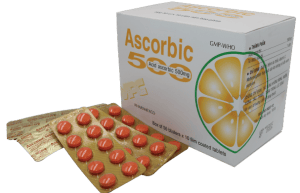5 ways to increase nitric oxide naturally
Nitric oxide is a molecule naturally produced by the body and is important for many aspects of health. A deficiency can lead to several diseases, such as heart disease, diabetes, and erectile dysfunction. Here are five ways to naturally increase nitric oxide levels.
1. Eat vegetables high in nitrates
Dietary nitrate is converted into nitric oxide molecules. This substance plays an extremely important role in cardiovascular health and physical performance. Vegetables high in nitrates include coriander, celery, spinach, beetroot, lettuce, watercress, and arugula. Several reviews show that eating nitrate-rich vegetables effectively lowers blood pressure, comparable to some antihypertensive drugs. Researchers also note that regular beetroot consumption may improve physical performance.
Although nitrate promotes nitric oxide production, concerns exist regarding its potential harm and link to cancer. This is often due to sodium nitrate's use as a preservative and color fixative in processed meats like deli meats, bacon, and hot dogs. High consumption of these foods may increase bowel cancer risk, with nitrates implicated.
However, over 80% of nitrate in vegetables is accompanied by antioxidants like vitamin C, which helps prevent N-nitroso compound formation. Therefore, nitrate from vegetables is considered safe.

2. Increase antioxidant intake
Nitric oxide is unstable and breaks down quickly in the blood, requiring continuous replenishment. Increasing antioxidant intake helps stabilize and increase nitric oxide levels.
Antioxidants neutralize free radicals and are found in plant-based foods like vegetables, fruits, seeds, and whole grains. Important antioxidants to include are:
* Vitamin C: Helps form connective tissues (skin, tendons, bones, cartilage) and aids in brain chemical production for nerve cell communication.
* Vitamin E: Protects cells from free radical damage, a major contributor to aging and disease, and boosts immunity.
* Glutathione: A master antioxidant with a key detoxification role in every cell.
* Polyphenols: Have the effect of preventing cancer as well as heart-related problems. Several studies have shown that consuming nitric oxide precursors, such as citrulline and nitrates, along with antioxidants can help maintain higher nitric oxide levels in the body by reducing their degradation. You can include more vegetables in your daily diet to increase and maintain nitric oxide levels in the body, as most vegetables are high in nitrates and other important antioxidants.
3. Use Nitric Oxide Boosting Supplements
Nitric oxide boosters are available on the market today. Although these supplements do not contain nitric oxide, they do include ingredients that can help with nitric oxide production in the body. The two most common ingredients used in nitric oxide boosting supplements are L-arginine and L-citrulline.
3.1. Amino acid L-arginine
This is a conditionally essential amino acid, consumed under certain conditions. Through the L-arginine-NO pathway, it directly produces nitric oxide. Additionally, L-arginine is used to increase blood flow; however, it is only used under certain circumstances.
People with high blood pressure, including pregnant women, may use L-arginine to lower blood pressure levels. It is considered safe for health when consumed at approximately 10 grams per day. Gastrointestinal symptoms have been reported in some cases at doses as low as 10 grams.

3.2. Amino acid L-citrulline
This is an indispensable amino acid. When L-citrulline is converted to nitric oxide, it is produced as a byproduct. The L-citrulline can then be recycled into L-arginine and used to boost the body's natural oxide production. oxide. In fact, L-citrulline can increase the body's L-arginine levels far more than L-arginine supplementation. This is because most L-arginine is broken down before reaching the bloodstream.
Several studies have shown that supplementation L-citrulline can increase blood flow, reduce high blood pressure, and improve exercise performance. It is also considered safe and causes few side effects, even at high doses.
4. Limiting mouthwash ash
Mouthwash kills bacteria contributing to tooth decay and other oral diseases. However, mouthwash may also kill beneficial bacteria that produce nitric oxide. Oral probiotics convert nitrates into nitric oxide; nitrate cannot be converted to nitric oxide without these bacteria. Some evidence suggests mouthwash can kill beneficial bacteria for up to 12 hours, decreasing nitric oxide production and potentially increasing blood pressure.
Other studies show that people using mouthwash at least twice daily have a 65% higher risk of diabetes than non-users. This is because mouthwash reduces nitric oxide, affecting insulin function. Therefore, to maintain adequate nitric oxide levels, moderate mouthwash use is recommended.

5. Exercise and blood circulation
Exercise improves endothelial function, increasing blood circulation. The endothelium, the lining g blood vessels, produces nitric oxide and maintains vascular health. Insufficient nitric oxide disrupts endothelial function, contributing to atherosclerosis, high blood pressure, and heart disease. Therefore, exercise is essential for healthy endothelial cells and blood vessels. Some studies have shown that regular exercise can increase endothelial vasodilation in people with heart disease, high blood pressure, and healthy individuals. Additionally, it enhances antioxidant activity and inhibits the breakdown of nitric oxide caused by free radicals.
The benefits of exercise on endothelial health and nitric oxide production will be evident after at least 10 weeks of being physically active for 30 minutes, at least three times a week.
For optimal results, combine aerobic exercise (such as walking or jogging) with anaerobic training (such as strength training). Choose the type of exercise you enjoy and can sustain long-term.
Nitric oxide is a molecule naturally produced by the body and is important for many aspects of health. Therefore, a lack of nitric oxide increases the risk of disease. Increasing nitric oxide is therefore extremely important for health.
Please dial the hotline for more information or register for an appointment here. Download the MyVinmec app to make appointments faster and manage your bookings easily.
Please dial HOTLINE for more information or register for an appointment HERE. Download MyVinmec app to make appointments faster and to manage your bookings easily.
Reference source: healthline.com













